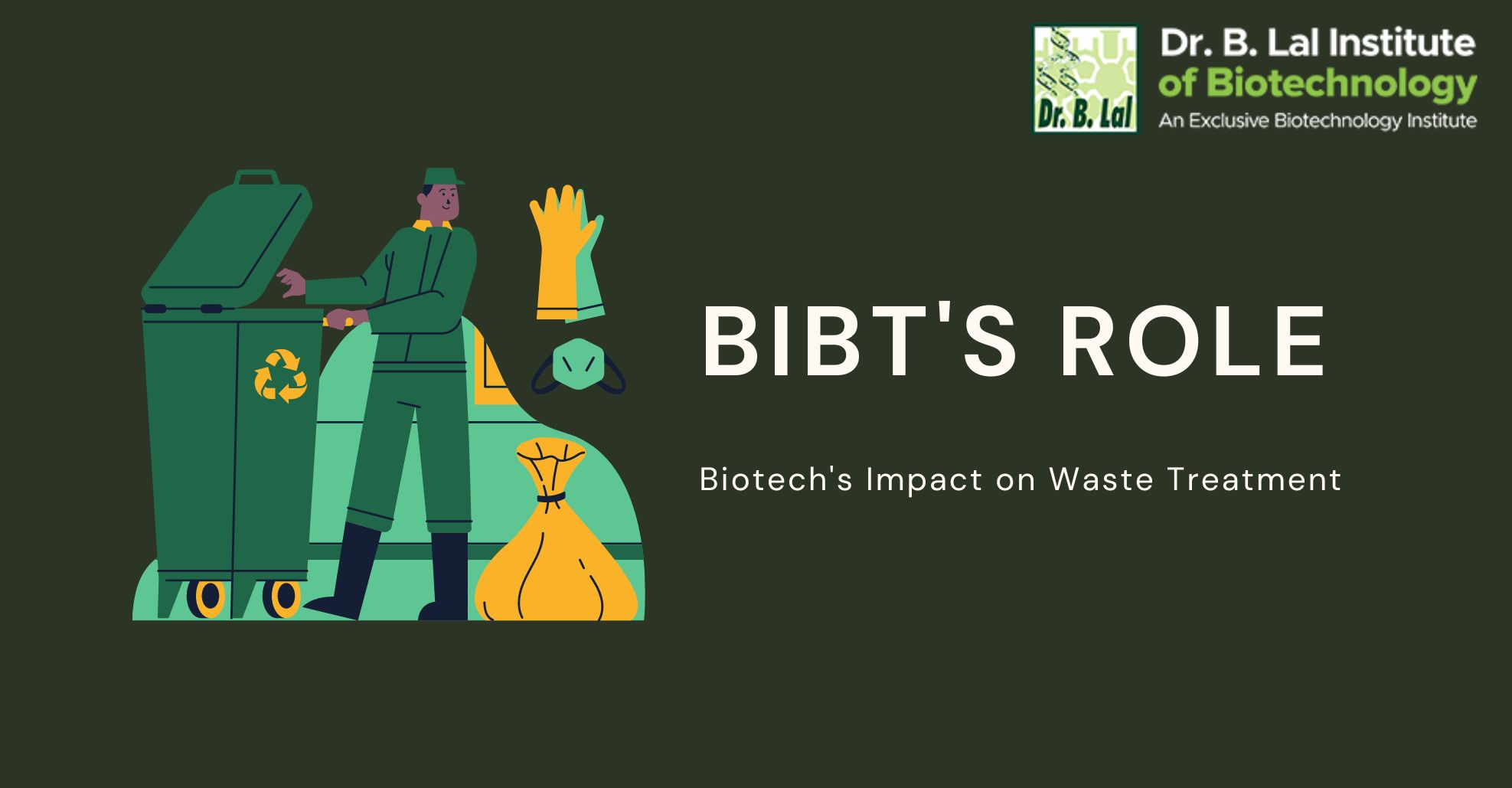
Biotech's Impact on Waste Treatment: BIBT's Role
Introduction:
In an era where environmental sustainability is paramount, biotechnology emerges as a beacon of hope, especially in waste treatment. The Dr. B Lal Institute of Biotechnology (BIBT) in Jaipur is at the forefront of this revolution, combining innovative research with practical solutions. This blog dives into the role of biotechnology in waste treatment and how BIBT is contributing to a greener planet.
Biotechnology in Waste Management:
Biotechnology, with its ability to harness living organisms for practical purposes, is changing the landscape of waste management. Through processes like bioremediation, bio-augmentation, and composting, biotechnology offers efficient and eco-friendly methods to tackle various types of waste, including industrial, agricultural, and household.
Bioremediation, a process where microorganisms are used to degrade pollutants, is particularly effective for treating contaminated soil and water. Bio-augmentation involves adding specific strains of bacteria to accelerate the degradation of pollutants. These methods not only reduce waste but also minimize the environmental impact, turning harmful substances into harmless byproducts.
BIBT's Innovative Approach:
At BIBT, the focus is on pioneering biotechnological solutions for waste treatment. The institute's state-of-the-art labs and research centers are hubs for developing new biotech methods to handle waste more effectively. BIBT's researchers are working on enhancing microbial strains that can break down complex pollutants, creating a cleaner and safer environment.
BIBT's collaborations with industry leaders in biotechnology and waste management further enhance the practical applicability of their research. These partnerships aim to bridge the gap between academic research and real-world environmental challenges, ensuring that BIBT's innovations contribute directly to sustainable waste management practices.
Biotechnology's Future in Waste Treatment:
The potential of biotechnology in waste treatment is immense. With ongoing research and technological advancements, we are looking at a future where biotech solutions could significantly reduce landfill waste, mitigate pollution, and even generate renewable energy from waste materials. The role of educational and research institutions like BIBT in driving these advancements cannot be overstated.
Why BIBT Stands Out:
What sets BIBT apart is its commitment to environmental sustainability and its active role in shaping the future of waste treatment through biotechnology. The institute not only educates the next generation of biotechnologists but also equips them with the tools and knowledge to make tangible impacts in the field of waste management.
Conclusion:
Biotechnology's role in waste treatment is a testament to how science can be harnessed for the betterment of our planet. BIBT stands at the forefront of this field, fostering innovation and research that pave the way for more sustainable practices. As we continue to face environmental challenges, the work being
Related article: Bioplastic Products: Sustainable Way for Plastic Pollution
Explore how biotechnology transforms waste management and the pivotal role BIBT plays in pioneering sustainable biotech solutions for a cleaner future.
Made it this far? That means you're curious—and we love that! Ready to test your passion for biotechnology? Click below to find out 👇🏻
Biotechnology Aptitude Test




Your email address will not be published. Required fields are marked *